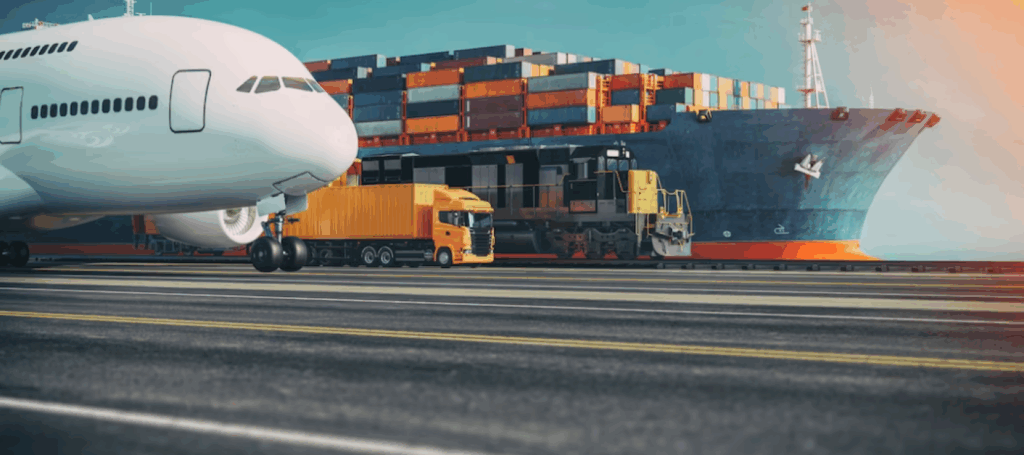- By TOP CHINA FREIGHT
- September 3, 2025
- Shipping
Table of Contents
Shipping goods from China to India requires careful planning due to fluctuating transport cost from China to India, varying transit times, and customs regulations. Businesses and individuals often struggle to choose the most efficient shipping method while keeping costs manageable.

What Shipping Methods Are Available from China to India?
There are four main options: sea freight, air freight, rail freight, and express courier. Each method varies in cost, speed, and suitability depending on cargo type.
| Shipping Method | Estimated Cost | Transit Time | Advantages | Limitations |
|---|---|---|---|---|
| Sea Freight (FCL/LCL) | $1,000–$3,500 per container | 20–35 days | Economical for bulk shipments | Slow, port handling required |
| Air Freight | $5–$12 per kg | 4–10 days | Fast, ideal for urgent shipments | Expensive for heavy cargo |
| Rail Freight | $1,500–$3,000 per 40ft container | 12–18 days | Balanced cost and speed | Limited routes, may require inland transport |
| Express Courier | $10–$25 per kg | 3–7 days | Door-to-door service, tracking included | High cost for large parcels |
Tip:
Sea freight is suitable for large bulk shipments, air for urgent high-value cargo, rail for industrial goods needing moderate speed, and express courier for small parcels.
How Is Transport Cost from China to India Determined?
Costs depend on multiple factors:
| Factor | Impact on Cost |
|---|---|
| Weight & Volume | Heavier or larger shipments cost more |
| Shipping Mode | Air and express are faster but pricier than sea or rail |
| Seasonality | High demand periods increase prices (e.g., Chinese New Year) |
| Port & Handling Fees | Includes customs, fuel surcharges, and inland transport |
Average Costs for Different Transport Methods

| Method | Shipment Size | Approximate Cost (USD) | Transit Time |
|---|---|---|---|
| Sea Freight FCL 20ft | 20–25 m³ | $1,000–$2,000 | 20–28 days |
| Sea Freight FCL 40ft | 40–45 m³ | $2,000–$3,500 | 25–35 days |
| Sea Freight LCL | <1 full container | $50–$150 per m³ | 20–35 days |
| Air Freight | 10–50 kg | $5–$12 per kg | 4–10 days |
| Rail Freight 20ft | 20–25 m³ | $1,500–$2,500 | 12–18 days |
| Rail Freight 40ft | 40–45 m³ | $2,500–$3,000 | 12–18 days |
Tip:
Consolidating small shipments can reduce costs, especially for LCL or air cargo.
What Factors Influence Transit Time?
Transit times vary depending on shipping method and distance:
| Method | Typical Transit Time | Notes |
|---|---|---|
| Sea Freight | 20–35 days | Reliable, suitable for bulk shipments |
| Air Freight | 4–10 days | Fastest for small to medium cargo |
| Rail Freight | 12–18 days | Balanced speed and cost, ideal for industrial goods |
| Express Courier | 3–7 days | Best for small parcels, door-to-door service |
Tip:
Always factor in customs clearance and inland transport within India when planning delivery schedules.
Key Documents Required for Shipping from China to India

Accurate documentation ensures smooth customs clearance:
| Document | Purpose |
|---|---|
| Commercial Invoice | Declares item value and parties involved |
| Packing List | Details contents, weight, dimensions |
| Bill of Lading (B/L) | For sea shipments |
| Air Waybill (AWB) | For air shipments |
| Certificate of Origin | Verifies origin of goods |
| Import License | Required for restricted products |
| Insurance Certificate | Protects against loss or damage |
Tip:
Freight forwarders can prepare all necessary documents to avoid customs delays.
Sea Freight vs Air Freight vs Rail vs Express: Which to Choose?

| Method | Pros | Cons | Recommended Use |
|---|---|---|---|
| Sea Freight | Economical for large shipments | Slower transit, port handling required | Bulk industrial goods |
| Air Freight | Fast and reliable | Expensive for heavy shipments | Urgent high-value cargo |
| Rail Freight | Balanced cost and speed, eco-friendly | Limited routes, inland transport needed | Medium-size industrial shipments |
| Express Courier | Door-to-door, fastest option | High cost for large parcels | Small parcels, e-commerce |
Case Study:
A Mumbai electronics supplier imported 300 laptop components from Shenzhen using rail freight. Delivery took 15 days, faster than sea freight, with cost savings of 50% compared to air freight. The forwarder handled customs and final-mile transport to the warehouse.
How Freight Forwarders Reduce Transport Costs
Freight forwarders help businesses reduce shipping costs and complexity by:
- Consolidating small shipments (LCL)
- Negotiating discounted freight rates
- Managing customs documentation
- Offering real-time tracking and updates
Tracking Shipments from China to India
Tracking helps ensure timely deliveries:
1.Air and express shipments:
AWB or courier tracking number
2.Sea freight:
container tracking with forwarder updates
3.Rail freight:
tracked at departure and arrival terminals
Tip:
Confirm tracking options with your forwarder to plan for inland transport in India.
Common Challenges When Shipping from China to India
- Customs delays due to incomplete paperwork
- Seasonal surcharges during peak periods
- Transit delays from port congestion, weather, or logistics bottlenecks
- Cargo damage due to poor packaging or mishandling
Tip:
Insure your shipments and work with a reputable forwarder to minimize risks.
Example: Shipping Garments from Guangzhou to Delhi
| Parameter | Details |
|---|---|
| Shipment Type | FCL 40ft container via sea freight |
| Cargo | 500 cartons of garments |
| Cost | $3,200 including customs and insurance |
| Transit Time | 28 days |
| Outcome | Delivered on schedule, no customs issues |
This example highlights the importance of planning, proper documentation, and using a reliable freight forwarder to ensure smooth delivery.
Conclusion
Shipping from China to India involves multiple transport options—sea, air, rail, and express courier. Rail freight offers a balance between cost and speed, while sea freight is ideal for bulk shipments, and air or express is best for urgent deliveries. Proper documentation, reliable forwarders, and accurate planning ensure cost-effective, timely, and safe deliveries. Businesses can optimize supply chains and maintain smooth operations by selecting the right method and monitoring shipments carefully.
Need a Shipping Quote?
If you want expert guidance and peace of mind, our team is ready to assist.
TJ China Freight offers tailored solutions to help businesses of all sizes ship more reliably from China.

FAQs
Q1:How is customs duty calculated for shipments from China?
Customs duty is based on the shipment’s declared value, type of goods, and applicable HSN (Harmonized System) codes. Taxes may include GST and additional surcharges depending on the product category.
Q2:Can I change the delivery address after shipment is in transit?
Changing the delivery address depends on the shipping method. Air and express shipments may allow updates, while sea and rail freight usually require prior notice and additional handling fees.
Q3:What items are restricted for import from China to India?
Certain products like hazardous materials, chemicals, counterfeit goods, and some electronics require special permits or are prohibited. Always check Indian import regulations before shipping to avoid fines or confiscation.
Q4:What is the best packaging for long-distance shipments?
Durable packaging, including pallets, crates, or shrink wrap, is recommended. Fragile items should have cushioning materials, while liquid or perishable goods require specialized containers to prevent damage or spoilage.
Q5:Are there any insurance options specific to high-value shipments?
Yes, forwarders offer tailored insurance policies for high-value items, covering theft, damage, or loss during transit. Policies may include full replacement or declared value coverage, depending on client requirements.
